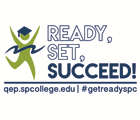- Motivation and Ownership
- Knowledge Monitoring
- Comprehension Strategies
- Time-Management
- Learning Communities
Motivation is the degree to which a student will take ownership of their actions and adopt behaviors that lead to goal attainment. Students who model self-regulation, alter behaviors that support goal attainment, and decrease behaviors that do not support goal attainment are likely to strengthen their motivation to learn.
To Learn More About Motivation:
- Who Am I and What Am I Going to Do With My Life? Personal and Collective Identities as Motivators of Action
- Grit: Perseverance and Passion for Long-Term Goals
- Self-efficacy: Toward a Unifying Theory of Behavioral Change
Visitors:
Knowledge monitoring is a student’s ability to monitor their learning by differentiating between the known and unknown.
To Learn More About Knowledge Monitoring:
- Metacognitive Knowledge Monitoring and Self-Regulated Learning: Academic Success and Reflections on Learning
- The Case for Noncognitive Assessments
- Knowledge Monitoring, Goal Orientations, Self-Efficacy, And Academic Performance: A Path Analysis
Visitors:
To Learn More About Comprehension Strategies:
- Reflection: A Key Component to Thinking Critically
- Higher Order Thinking Skills
- Learning Strategies of Alberta College Students
Visitors:
Time-management is the act or process of planning and exercising conscious control over the amount of time spent on specific activities, especially to increase effectiveness, efficiency, or productivity.
To Learn More About Time-Management:
- The Effectiveness of Time Management Strategies Instruction on Students' Academic Time Management and Academic Self-Efficacy
- What Do We Know About Time Management? A Review of the Literature and a Psychometric Critique of Instruments Assessing Time Management
- Do College Students Struggle with Time Management?
Visitors:
The Quality Enhancement Committee designed a specific model of learning communities, called Neighborhoods for Success (N4S), for the Ready, Set, Succeed! initiative. The N4S are specifically designed for flex-opt out students and will help students learn valuable skills for long-term success in college.
To Learn More About Learning Communities:
- Freshman Learning Communities, College Performance, and Retention
- A New Era in Learning Community Work: Why the Pedagogy of Intentional Integration Matters
- Zhao, C. & Kuh, G. D. (2004). Adding value: Learning communities and student engagement
- Learning Communities Information Sheet
Visitors:
